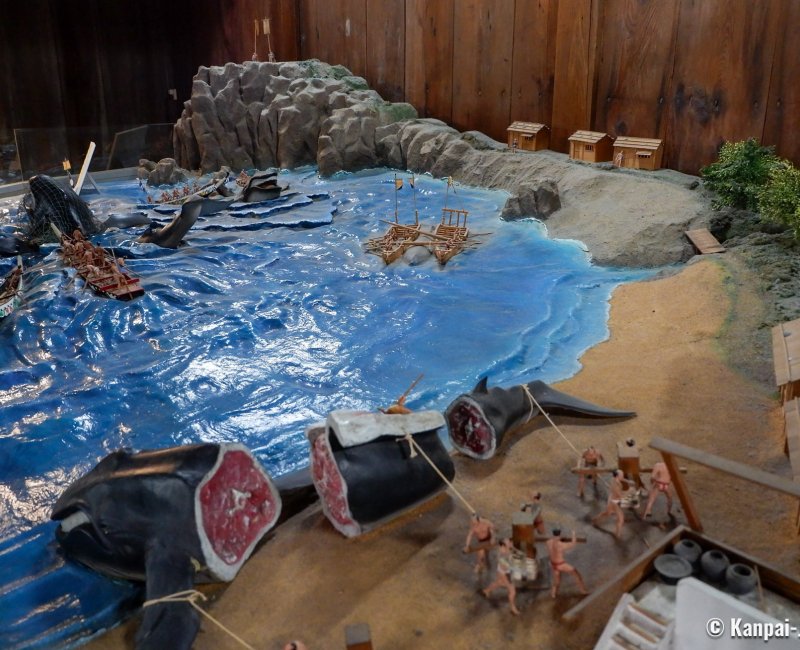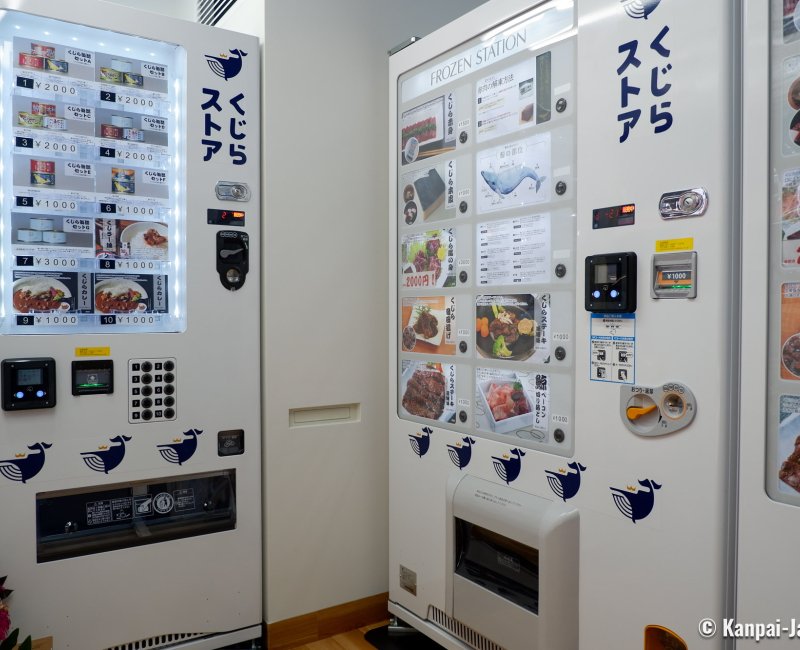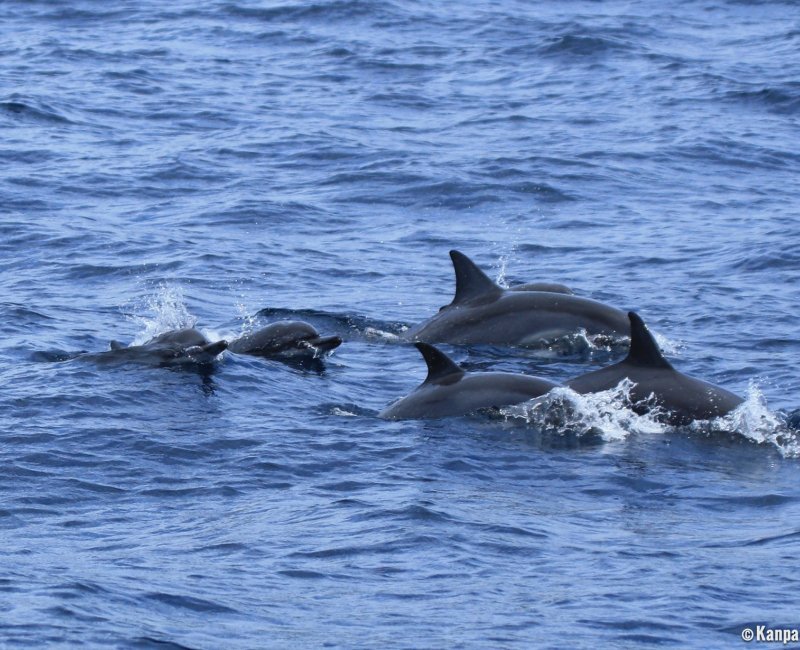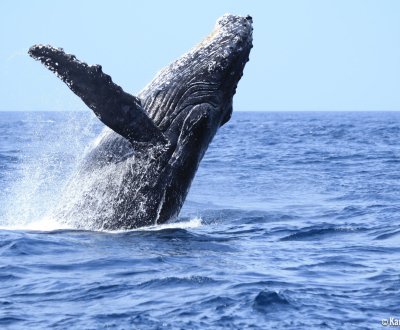Japan’s Vendetta Against Paul Watson
🐋 Strife Over Commercial Whaling
Anti-whaling activist Paul Watson was arrested on July 21, 2024, in Greenland on his way to intercept the Kangei Maru, the new flagship of the Japanese whaling fleet. He was imprisoned 149 days, after his custody was prolonged 6 times, and was finally released from jail on 2024, December 17th.
Paul Watson’s detention provoked an international outcry and several petitions have been initiated asking for his release. The event is a reminder of Japan’s official resumption of commercial whale hunting in 2019, and that it is one of the last 3 countries, with Iceland and Norway, taking part in this activity.
Whaling: a timeless and universal hunting
🌍 In the world
Whaling has been a longstanding practice all around the world, and it peaked with the industrial whale hunting in the beginning of the 20th century. Whales were hunted especially for their oil that played an important economic role, as well as for their meat that came in large quantities, and every part of the animals was consumed and / or exploited for a specific usage.
However, over-hunting caused a rarefaction of whales, and the first international hunting regulations started to be issued at the end of WWII. The International Whaling Commission was created in 1948 under the lead of the UN, and established hunting quotas to manage the whale resource. In 1986, ¾ of the IWC’s members started to implement a commercial whaling moratorium, that is to say a pause in the whale hunting, that is still in place today. The only countries to refuse the moratorium were Norway, the U.S.S.R. and Peru, while Japan eventually complied, but following with its own interpretation.

🇯🇵 In Japan
Whale hunting used to be a longstanding custom in the archipelago, providing an essential food resource for many villages.
In the Post-war era, the country was drained and partially relied on the sea mammals’ meat to sustain its population. Whale meat consumption peaked in 1962, with 233,000 tons per year, then declined steadily as other, more affordable and easier to produce protein sources, like chicken or beef, became widely available.
In the 1980s, Japan officially relinquished commercial whaling, but continued to hunt cetaceans, on a smaller scale (about 1,035 animals per year) and under the cover of scientific research, especially in the Southern Ocean (Antarctic Ocean) and in the Pacific North-West.
However, the meat was openly sold for consumption, which led the UN to condemn Japan’s whale hunting and to forbid whaling in the waters surrounding the Antarctic in 2014. Shinzo Abe, who was Prime Minister at the time, took notice of this decision while affirming that whaling was a part of Japanese culture and stressing on the fact that scientific captures were necessary for a better understanding of the resources, in view of a future commercial whaling resuming.
Japan resumed commercial whaling in 2019, limiting the hunting to the archipelago’s territorial waters, after the country withdrew from the International Whaling Commission. The Japanese authorities justified this decision basing it on the national identity argument, viewing whaling as an integral part of Japanese culture. They also claimed it would help the country’s food autonomy, in regard to its lack of agricultural resources. The Japanese government is also aiming at increasing whale meat consumption, especially in women and children, but also in tourists, who are introduced to whale meat as part of a cultural experience. While "scientific" hunting stopped in the Southern Ocean in 2016, Japan does intent to resume commercial whaling there from 2025, thanks to the Kangei Maru.
The questionable need for whale hunting
While denying that whaling used to be part of the Japanese culture is impossible, it should be noted that whale meat hasn’t been part of most Japanese people’s diet since the 1970s, and that nowadays, most of them have never eaten it (about 2,000 tons per year are currently consumed, about less than 24g per person.
Additionally, one can’t help but wondering about the need of boosting the consumption of an already precarious resource. Cetaceans’ herds have been largely depleted by intensive fishing in the early 20th century, and they still have to face multiple dangers due to human activities at sea (ship collision, various types of pollution) as well as climate change. Japan has not hunted sperm whales (classed a “vulnerable” species) since 1988, but in 2019 it resumed commercial whaling on:
- Minke whale (which is a "near-threatened" species in the Southern Ocean);
- Sei whale (25 animals per year, and an "endangered" species); and,
- Bryde’s whale (a "least-concerned" species, 187 animals per year since 2019).
On September 2024, the Kangei Maru also killed 5 fin whales over an intended quota of 49, a first in 50 years. Fin whales are one of the biggest cetaceans on the planet, are classified as a "vulnerable" species and hunting them is strictly forbidden by 1986’s moratorium. Kyodo Senpaku, the factory-vessel’s shipowner, argues that their catches do not threaten the species, relying on data provided by Japanese scientific organisms.
Furthermore, whales’ reproduction rate is very low compared to other species, and prevent a fast recovery of their population.
As for the food aspect, gourmets find that only a few, very specific parts (the lards and some parts of the tail) are tasty, while the rest of the meat does not improve food culture, even considering nutrition, to the point that it was largely used as animal food in the past. The whale meat is also unpopular as it is known to be contaminated with heavy metals, that are harmful to health.

Despite the international community’s criticism and condemnations, Japan resumed commercial whaling in 2019 and launched a state of the art factory-vessel, the Kangei Maru in May 2024. The ship belongs to the company Kyodo Senpaku and can handle whales weighing up to 70 tons. The first specimen captured by the Kangei Maru in early August weighted 55 tons and was about 20 meters long; its meat was sold at Toyosu Fish Market in mid-September.
Paul Watson’s activism
Who are Paul Watson and Sea Shepherd
Captain Paul Watson is a sailor and a lifelong environmental activist. He was part of Greenpeace in the 1970s, and protested against nuclear tests, and to protect marine mammals (seals, whales). In 1977, he founds the Sea Shepherd Conservation Society, as he was disagreeing with Greenpeace’s non-violent action. Watson prefers to act on "aggressive non-violence interference" by aiming at goods but not at people. It translates into actions to sabotage ships, blocking ports to prevent a whaling fleet from setting sail, or standing between the hunters and their preys for example.
Sea Shepherd is now internationally recognized, often works in collaboration with governments, and has established about 40 local branches throughout the world. The NGO relies on international conventions on nature and biodiversity protection, and advocates:
- Against whale, dolphins and seals hunting;
- Against illegal fishing and over-fishing;
- For the protection or sharks and red tuna, and,
- Against the captivity of cetaceans in animal parks.
The NGO and its volunteers’ radical actions earned them the nicknames of "ecowarriors" or "eco-terrorists" depending on the viewpoint.
Paul Watson and Japan: a long history
Since 2022 and his eviction from Sea Shepherd’s board of directors, Paul Watson continues his activism through a new organization named after him: the Captain Paul Watson Foundation. It was during one of his operations that he was arrested in Greenland, as he was en route to interfere in the Kangei Maru’s first whaling campaign. The Danish authorities arrested him upon an Interpol notice issued against him at the Japan’s request in 2012.
Sea Shepherd and Paul Watson indeed have a long history of clashing with Japanese whalers, with confrontations that grew increasingly in number and violence since the early 2000s. Sea Shepherd’s volunteers usually stand between the whaleboats and the whales, or spray Butyric acid on the flesh of the captured whales to make their meat unsuitable for human consumption. Both the NGO’s fleet and the whaling fleets were frequently damaged, in operations aiming at making the hunting campaigns unprofitable due to the lack of catches.

Paul Watson’s arrest: reasons and implications
Charges brought up by Japan date back to an incident during a whaling campaign in 2010. A Sea Shepherd volunteer imprisoned in Japan accused Paul Watson of having ordered to board on a Japanese vessel. The international investigation did not give results, partly due to the Japanese authorities’ refusal for cooperation. However, following this case, Japan obtained a red notice by Interpol, a kind of international wanted notice, against Paul Watson.
He was first arrested in 2012 in Germany, but managed to escape and joined the Sea Shepherd fleet for a new whale protection operation in the Southern Ocean. Later, he could come back to the US without any further problem, after the accusations were withdrawn.
The risk of a jurisprudence
If Japan’s extradition request is granted, Paul Watson could be sentenced to a 15 years imprisonment, which means a life sentence for the 73 years old man. But beyond the captain’s radical and sometimes controversial personality, environmental activists fear the creation of a jurisprudence, that would criminalize and restrict their further actions.
Environmentalists, and Sea Shepherd France in particular, denounce a collusion of dolphin-hunting countries: hunts take place every year in Japan’s Taiji Bay and in Faeroe Islands in Denmark. As a matter of fact, Greenland is a country part of the Kingdom of Denmark.
They also point out that Japanese whaling is a government-subsidized industry, that has also strong ties to the yakuza, the organized crime. According to Sea Shepherd France, Paul Watson’s arrest coincides with Japan’s will to resume commercial whaling in the Southern Ocean Whale Sanctuary, an area where this activity is banned, as soon as 2025.
As Paul Watson has been living in France since 2023, French president Emmanuel Macron declared his support to the whales’ protector. While Watson is grateful for this official support, environmentalists consider the French leader is only doing a green-washing declaration, basing their criticism on his government’s anti-ecologist actions in the recent years. Moreover, the current political turmoils don’t really give him a chance for a real commitment to Paul Watson’s case.
The beginning of a long legal battle ?
Early September, and despite the extension of Paul Watson’s detention until October 2nd, his lawyers are reasonably optimistic, since they think an extradition order would go against Denmark’s own Constitution and against the European Convention on Human Rights. They also have doubts on the validity of the use of an Interpol notice in this case. The decision of the Danish Ministry of Justice is expected on October 2, 2024.
However, on October 2, 2024, the Danish Ministry of Justice rejected Paul Watson's request for release and extended his detention for 3 more weeks, until October 23 and, "in order to ensure his presence in connection with the decision on extradition" according to what the police said in statement.
In the meantime, on October 16, Sea Shepherd France announced that Paul Watson wrote to French president Emmanuel Macron to ask for political asylum.
On October 23, the Greenland court extended for the 4th time the environmental activist’s detention, until November 13, when a decision of the Danish authorities is expected regarding Japan’s extradition request.
The Greenland court extended Paul Watson’s detention 6 times, especially after the hearings of November 13 and December 4th. On 2024, December 17th, the Danish authorities finally denied Japan’s extradition request, a decision that allowed Paul Watson to be released from jail.
While he is free to come back home, the red notice in his name is still outstanding and Paul Watson intends to go to Interpol to have it canceled and resume his anti-whaling activities as soon as possible.

